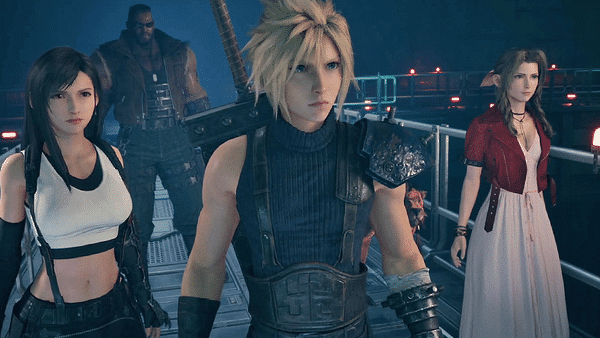
Explore the shadows of the unconscious and hidden threads that intertwine the destination in the Final Fantasy VII saga
Introduction: Beyond the Guardians of Destiny
From its appearance in Remake Final Fantasy VIIlos Echoes of fate They were subject to intense debates and theories. Many think they are entity that preserve the time line of the original game, but their true nature and purpose have been questioned, especially after the events of Final Fantasy VII Rebirth.
With the incorporation of philosophical and psychological concepts such as the collective unconscious of Carl Jung and the Buddhist Yogācāra school, a new perspective opens up to reinterpret the role of echoes. More than simple guardians of fate, they could represent manifestations of the unconscious, projections of trauma and repressed desires that influence the narrative and the characters.
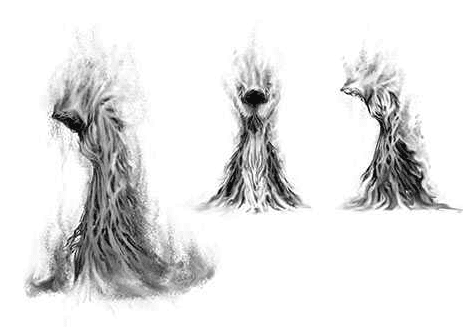

This article offers a reinterpretation of the key interventions of the echoes in Remake Final Fantasy VIIFocusing on chapters 2, 4, 8, 12, 17 and 18 and exploring how these entities could symbolize deep aspects of the human psyche and the flow of collective consciousness.
Chapter 2: the forced meeting between Cloud and Aeris
The echoes appear just when Air It is on the road to sector 8, first Cloud I arrived.
Its function is to isolate it, scare it and prepare the scene to arrive the cloud and the “rescue”.
Therefore, your first emotional contact is forced, necessary later so that Sephiroth manipulates the events of the temple and to obtain black matter.




The simultaneous aspect of Sephirot and the echoes suggests coordination to force the meeting between Aeris and Cloud. When the cloud touches Aeris, he begins to see the echoes, indicating a transfer of perception or spiritual connection.
Chapter 4: The Abisal Eco and the Fall of Jessie
During this chapter of the remake of Final Fantasy VII, an echo observes the cloud while sleeping, accompanied by the voice of Sephiroth who whispers: “Continue to sleep …”. This scene suggests a dream invasion, in which Sephiroth, through the echoes, tries to keep cloud in a state of symbolic unconsciousness, preventing him from recovering his true identity.
The appearance of Eco Abisalof purple tone and ability to guide others, indicates a deeper and more dangerous manifestation of the corruption of the soul, perhaps linked to Jenova. The wound of Jessiecaused by the echoes, alters the course of events, pushing Cloud to assume a role that originally did not correspond to it, which suggests a manipulation of the destination to serve the purposes of Sephiroth. This forces the cloud to join the mission in its place, and even closer to Aeris, strengthening its connection.
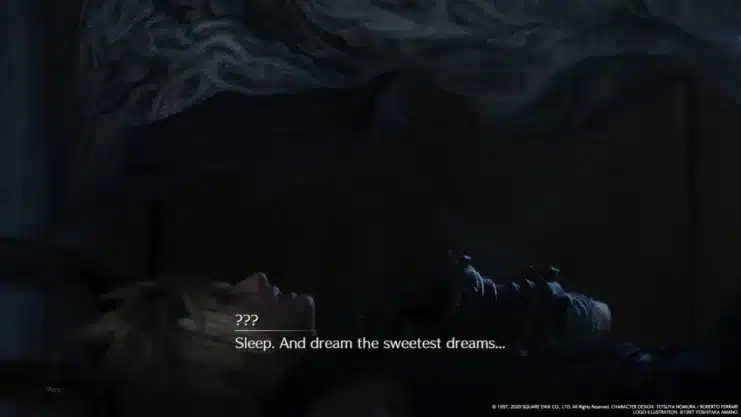



Chapter 8: the spiritual descent and the alternative version of Cloud
The cloud falls into a white space, dragged by the echoes and has a brief encounter with another version of herself before waking up comfortably in the church of sector 5. This limited space could represent an intermediate area between reality or plans of consciousness, where it is faced with dissociated aspects of its identity.
From the Jungian theory, this meeting symbolizes the clash with “Shadow i”, a repressed part of his psyche that must be integrated to achieve totality. In terms of yogācāra, the appearance of another cloud implies a karmic bifurcation, in which consciousness must face alternative versions generated by past afflictions.
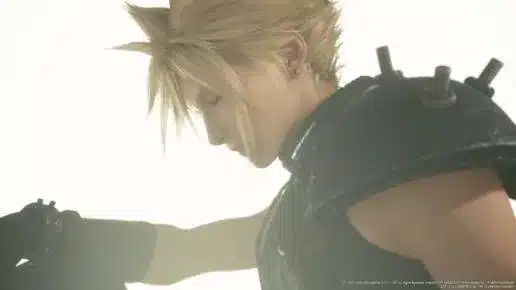



So let’s see how the echoes prevent the cloud of partner Rhineensuring that the narrative follows a course that favors Sephiroth’s plans. If the cloud kills Reno against Aeris, this could affect the script established by Sephirot. Hence, the echoes help to escape cloud and aeris because they want their connection to be strengthened.
Chapter 12: the echoes prevent the fall of the pilar
Cloud, Tifa and Aeris face the echoes – including the Eco -Abisal – while trying to stop the fall of the piller of sector 7. The active and aggressive form in which they interfere these entities shows that their goal is not to preserve the history of the original Final Fantasy VII, but to guarantee moments of profound emotional rupture. In this case, they prevent the group from saving the pillar directly, triggering the tragedy.
From this perspective, the echoes do not seem simpler guardians of fate, but the corrupt souls in the service of a higher will: that of Sephiroth. By allowing (or even facilitating) the death of Jessie, Biggs and almost Wedge (and that of all the other inhabitants of sector 7), these beings contribute to nourishing the vital current with new souls, probably destined to be manipulated by sephiroth for their own purposes.


However, this act of destruction could also perform an energy function: allowing thousands of people to die in the collapse of sector 7, Sephiroth is causing a massive release of vital energy. According to his vision, the mass death feeds the vital current and allows him to absorb a more spiritual power. This event is a miniature version of your main plan: use the meteorite to destroy life and therefore appropriate all the energy issued by the dead.
Furthermore, the destruction of sector 7 is not only an urban catastrophe: emotional emptying is carefully calculated. For Cloud, this act has a direct consequence: it disconnects it from the most human and daily bonds that she has formed since she arrived in Midgar. Sector 7 represents an improvised house and Avalacha members, an incipient form of belonging. Destroying all this, Sephiroth isolates him emotionally, ensuring that, when you manifest yourself as a threat, the cloud has nothing to bring it to Midgar. Therefore, it will be easier to guide him – go free – follow his steps beyond the city.
From a Jungian approach, The fall of the pilar is a collective wound that opens a crack in the soul of the protagonists, especially in the cloud. The echoes act as regressive forces that prevent inner growth, strengthening the shadow and maintaining the characters anchored in the trauma. In the end they are tools for stagnation and psychic dissolution, useful for weakening the will and facilitating the influence of Sephiroth.
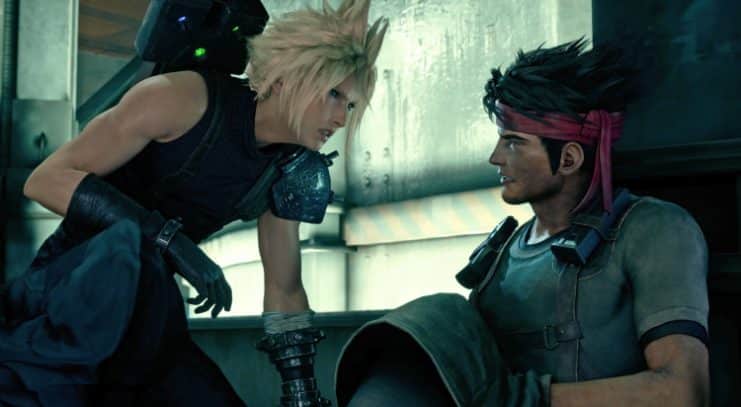

Chapter 17: Aeris and spiritual corruption
Aeris mentions in the remake of Final Fantasy VII which echoes stealing parts of themselves, indicating an interference in its spiritual connection with the Vital current. Like Cetra, Aeris has the ability to read the flow of the planet and perceive the omens, but this connection is blocked and fragmented by the echoes.
From the Buddhist vision of Yogācāra, Aeris is defending his basic consciousness (ālaya-vijñāna) against the interference of the negative karma represented by the echoes of the remake of Final Fantasy VII. This struggle symbolizes the psychic resistance to corruption and loss of spiritual identity.


The stab with Barret: The Threat Theater
In chapter 17 of Final Fantasy VII remake, Sephiroth is finally revealed not only as a ghostly figure, but as a specific threat. His sudden appearance in the office of President Shinra – and his murder – is not an impulsive act, but the deliberate beginning of a carefully orchestrated staging.
What Sephiroth needs is not to kill for impulse, but to show itself as a real and tangible danger. He needs clouds, aeris and the rest to understand that they face something that transcends Shinra and everything they have known so far. Only then can you bring them exactly where you want: beyond the wall of fate.
But so that this works, you have to create a fairly credible threat to mobilize them emotionally, without destroying them in the process. That’s why Bartet stabs in front of everyone. Not to kill him, but to generate panic, loss, urgency. And just when the group seems to break, the echoes intervene.


This moment has been misunderstood as an act of correction of the “original canon” of Final Fantasy VII. But from the point of view we defend here, the echoes act as accomplices: they allow Barret to survive because Sephiroth needs to keep cohesive the group’s emotional dynamics. If Barret dies at that moment, Cloud could deviate from the planned road. On the other hand, when they save him, the echoes reaffirm their role as “Guardians of Destiny”, a misleading label that hides its true function as tools of the Sephiroth plan.
The immediate confrontation against Jenova is not an accident. Sephiroth causes this struggle as a symbolic initiation ritual: the protagonists must live terror, feel the size of what they face. This battle does not have a tactical but psychological goal: to prepare the emotional ground for the crossing of the destination wall. Now they know – or think they know – what they have in front of them, and that’s exactly what Sephiroth has searched.
In this chapter of the remake of Final Fantasy VII, so everything is part of a script that Sephiroth has started to direct. The murder of the president, the false death of Barret, the fight against Jenova … are elements of a staging that tries to mobilize the heroes from trauma to a destiny that he himself has designed. Do not manipulate them from the shadows: manipulate them from the illusion of freedom.
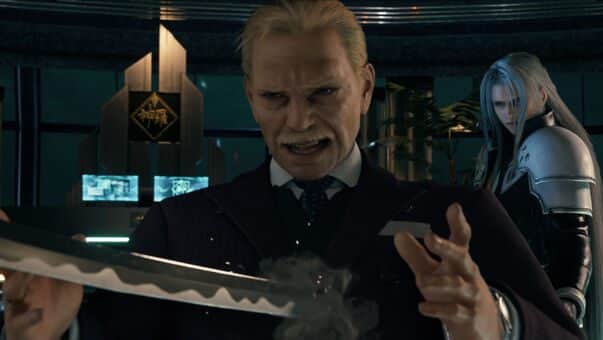

Finally, The murder of President Shinra in the remake of Final Fantasy VII could be a more strategic act of what we think: with Rufus as a new president, Sephiroth gets a younger, unstable and manipulating leader. Sephirot would use the figure of Glenn to direct Rufus towards the war with Wutai, who would bring with him a large number of deaths. These deaths, as in the case of sector 7, would have fueled the vital current and strengthen Sephiroth, bringing it closer to its main plan. In addition, this conflict would prevent Rufus with the real enemy, Sephirot.
Alternative interpretation: autonomy in the echoes?
However, it can be considered a second reading. What if the echoes that save Barret do not act pursuant to the direct orders of Sephiroth? It is possible that, like clones, these corrupt spiritual fragments are still trapped in the orbit of their will, but maintain a certain degree of autonomy. In this interpretation, the echoes react by impulse, and this is why he saves the person who has challenged the being who is corrupt from vital current


Chapter 18: the wall of fate and the release of the possibilities
The group is going through the “Wall of Destiny”A barrier formed by corrupt souls who accepted a false destination. Defeating “omen”, the central echo that coordinates the others is released, an overload of energy is released which gives rise to divergent artificial worlds.
Sephiroth tries to take advantage of these worlds so that Gaia becomes eternal and absorbent infinite possibilities. This act represents the manipulation of the flow of collective consciousness, creating alternative realities (non-physical, rather psycho-scratist) that serve their ends.




From the Jungian point of view, the defeat of the omen in the remake of Final Fantasy VII symbolizes the clash and overcoming of the forces that suppress individual and collective growth. In terms of yogācāra, the release of possibilities indicates a transformation in basic awareness, allowing the manifestation of new psycho-scratific realities.
Conclusion: Echoes as a reflection of the collective unconscious
Through this reinterpretation, the echoes of fate in the remake of Final Fantasy VII can be interpreted not as entities that preserve a temporal line, but as manifestations of the collective unconscious and the forces that shape the narrative and psyche of the characters. His intervention in the key moments suggests a profound manipulation of consciousness and fate, influenced by trauma, repressed desires and by the struggle between identification and submission to external control.
This perspective offers a richest and most complex understanding of Final Fantasy VII remake, opening the doors to future explorations on divergent worlds and the multiplicity of the self in the saga.
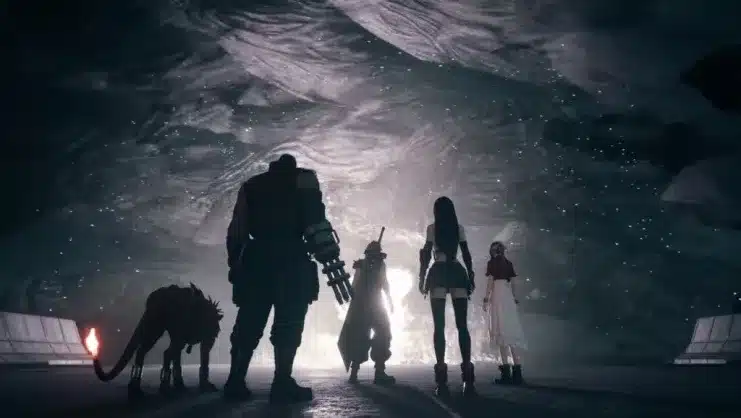

This analysis is part of a series that will continue to explore the symbolism hidden in Final Fantasy VII, above all because the narrative is fragmented and reconfigures in new forms.
The article had information and ideas from @ Seph7rothA great connoisseur of everything related to Final Fantasy VII and with which they could learn a little more on this world if they follow it.
If you want to know more about the Final Fantasy VII remake trilogy, click on the following titles
Remake Final Fantasy VII against interpretative chaos: Royal Multiverse or Narrative Mirage?
Is the Final Fantasy VII remake trilogy a cyclical reinterpretation in Evangelion style? A critical analysis that questioned one of the most popular theories among fans
Beyond Destiny: the hidden role of the echoes in the remake of Final Fantasy VII
Eco, omens and destination: a symbolic reading of the remake and the rebirth of Final Fantasy VII by Jung and Yogāra

